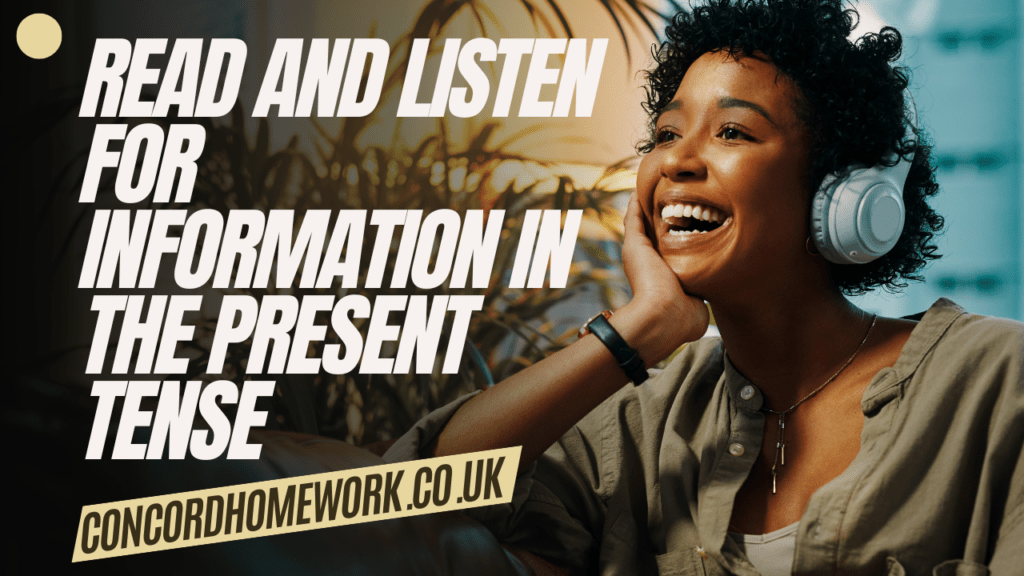Read and listen to the texts. Who is the website for?
Read the texts again and write G for Garden Flat and R for Rose Cottage.
Underline the correct words in the summary.
This worksheet is a reading and listening activity. Students read and listen for information in the present tense. They answer the questions. The worksheet has an answer key.
Simple Present Tense Usage
| Usage | Explanation | Example Sentence |
|---|---|---|
| 1. General Truths | Used for facts that are always true or generally applicable. | – People need food for survival. – It snows in winter here. – Two and two make four. |
| 2. Permanent Situations | Describes situations that are more or less permanent. | – Where do you live? – She works in a bank. – I don’t like mushrooms. |
| 3. Habits and Regular Actions | Expresses repeated actions or habits. Often accompanied by adverbs of frequency. | – Do you smoke? – I play tennis every Tuesday. – She doesn’t travel very often. |
| 4. Short Actions Happening Now | Used for brief actions that occur immediately and are quickly completed. Common in sports commentary. | – He takes the ball, he runs down the wing, and he scores! |
| 5. Future with Fixed Timetables | Discusses future events based on a fixed timetable set by an organization. | – School begins at nine tomorrow. – What time does the film start? – The plane arrives at seven thirty. |
| 6. Future with Subordinate Clauses | Refers to the future after words like ‘when,’ ‘until,’ ‘after,’ ‘before,’ and ‘as soon as’. | – I will call you when I have time. – I won’t go out until it stops raining. – I’m going to make dinner after I watch the news. |
| 7. First and Zero Conditionals | Used in conditional sentences. | – If it rains, we won’t come. – If you heat water to 100 degrees, it boils. |
Remember that the choice of prepositions (such as “at,” “in,” or “on”) depends on context and whether we refer to a general location or a specific area. For instance, we say “at work” (general location) but “in my office” (specific area). Keep these nuances in mind while discussing daily routines.

